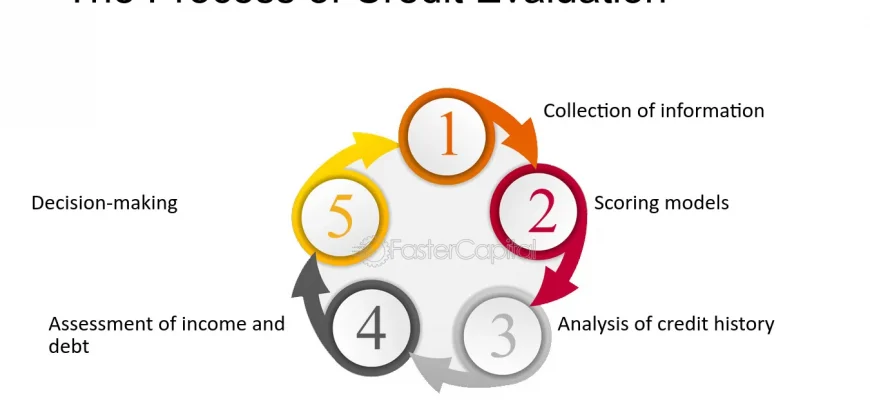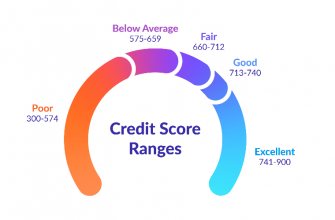Understanding the Process and Importance of Credit Evaluation in Financial Decision Making
Have you ever wondered how financial institutions decide whether to lend money or offer you a favorable rate? At the heart of this process lies an intricate analysis that helps assess an individual’s or a business’s reliability when it comes to managing obligations. This examination not only safeguards the lenders but also ensures that borrowers have the necessary support to grow and thrive financially.
In essence, it’s all about measuring the potential risks involved. When lenders look into a person’s financial history, they’re trying to figure out the likelihood that this individual will fulfill their commitments. This comprehensive approach takes into account various factors, including past behavior with loans, existing debts, and even personal circumstances. By digging into these details, institutions can make informed decisions that benefit both parties.
Moreover, understanding this analysis can empower you as a borrower. Knowledge of how your financial activities are scrutinized allows you to make better choices moving forward. Whether you’re planning to buy a home, start a business, or simply seeking a personal loan, being aware of these assessments can help you navigate the financial landscape more effectively.
Understanding Assessment Processes
When you delve into the world of personal finance, you quickly realize that many decisions hinge on a thorough analysis of an individual’s financial habits and reliability. This process helps institutions determine the level of risk associated with lending and borrowing. By examining various aspects of a person’s financial history, stakeholders are able to make informed choices that protect their interests while also considering the needs of consumers.
The steps involved in the analysis often include gathering financial records, evaluating payment patterns, and examining debt levels. This comprehensive approach allows for a clearer picture of one’s financial health. Institutions typically rely on specialized agencies that compile and assess this information, ensuring that no stone is left unturned in the quest for insight.
Factors such as income stability, outstanding obligations, and repayment history are meticulously reviewed to create a full portrait of an individual’s capacity to manage future responsibilities. Understanding these components not only empowers financial institutions but also helps individuals take proactive steps in enhancing their own financial profiles.
The Importance of Credit Ratings
Understanding the significance of assessment scores is crucial in today’s financial landscape. These ratings serve as a measure of trustworthiness and reliability for individuals and organizations alike. They can greatly influence access to funds and the terms associated with borrowing.
For individuals, a solid score can open doors to better interest rates and favorable borrowing conditions. It often determines whether one can secure a loan, rent an apartment, or even land a job. On a broader scale, businesses rely on these evaluations for their growth and sustainability. Investors and lenders look closely at these scores to make informed decisions about where to allocate resources.
In essence, these assessments act as a beacon, guiding both consumers and companies through the complex world of finance. A higher score often translates to more opportunities, while a lower one can lead to hurdles that may hinder progress. Thus, cultivating a good rating is not merely beneficial; it is essential for anyone looking to navigate financial waters effectively.
Moreover, understanding how these ratings are formulated can empower individuals to take control of their financial health. Active management of one’s financial responsibilities and informed decision-making can lead to improved scores over time. Whether it’s through timely payments or reducing debt, every action counts toward establishing a solid reputation in the eyes of lenders.
Ultimately, understanding why these assessments matter can inspire proactive behaviors that lead to financial well-being and security. With the right knowledge and approach, anyone can work towards achieving a favorable score that will unlock future possibilities.
Factors Influencing Your Score
When it comes to assessing your financial reliability, there are several key elements that play a pivotal role in shaping that all-important number. Understanding these influences can empower you to make informed choices and improve your standing over time.
Payment History: One of the most significant factors is how consistently you meet your payment obligations. Timely payments can positively reflect your trustworthiness, while missed or late payments can have a detrimental effect.
Debt Levels: The amount you owe in relation to your available credit is another crucial aspect. Keeping your balances low compared to your limits signals responsible management and can enhance your overall assessment.
Duration of Credit Accounts: The length of time you have had your accounts open also matters. A longer history can indicate reliability, as it shows you have experience with managing funds over several years.
Types of Accounts: Having a diverse mix of financial products, such as loans, credit cards, and mortgages, can work in your favor. Different types demonstrate your capability to handle various forms of credit effectively.
Recent Inquiries: Finally, be mindful of how often you apply for new accounts. Multiple inquiries in a short period can raise red flags, suggesting you might be taking on more debt than you can manage.
By staying aware of these factors and actively working to improve them, you can take charge of your financial future and potentially raise that crucial number over time.









